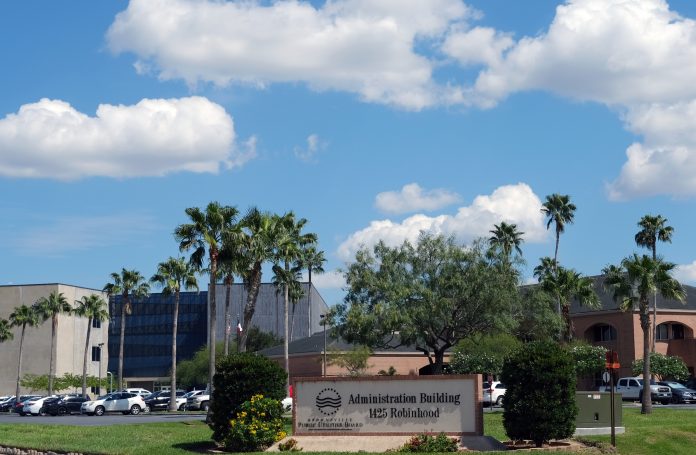
A forensic audit of Brownsville Public Utilities Board’s failed Tenaska power plant project, the results of which were released Oct. 5, is bringing scrutiny to a city bond ordinance that requires a certain amount of BPUB revenue to be transferred to the city to service bond debt.
Per the city charter, some amount of revenue has been transferred to the city since BPUB was formed in 1960, though a bond ordinance passed in 2005 created a new formula for such transfers, essentially guaranteeing more revenue being transferred to the city than provided for by the charter’s original formula.
Under the old formula, any BPUB surplus left at the end of the year was to be split 50-50 with the city. Under Bond Ordinance 2005-1438, however, the city became entitled to 10 percent of BPUB’s adjusted gross revenue at the end of each quarter, minus BPUB’s energy-production costs and its contributions to the Southmost Regional Water Authority, and minus the amount owed to BPUB by the city for utility services.
BPUB’s operations and maintenance costs and other obligations must also be paid for before any revenue is transferred to the city, according to 2005-1438. A caveat contained in Sec. 23 of the ordinance says that BPUB may pay a lesser amount “as may be determined from time to time” by BPUB’s governing body.
However, since the 2005 transfer formula was spotlighted in the Tenaska audit report, questions have arisen over whether the formula is fair and reasonable, especially after BPUB was required to transfer the full 10 percent despite the utility’s $49 million in losses related to the February 2021 winter storm, and after BPUB’s request to have a portion of the transfer waived ($10 million) in light of those losses was denied by the city commission.
The city commission’s Charter Review Committee met on Nov. 16 as it works toward possible recommendations for amendments to the charter regarding BPUB transfers to the city. The process is complicated, though, since any changes would not exist in a vacuum and, in fact, would not necessarily involve the city charter at all.
That’s according to City Attorney Victor Flores, who told the committee that any changes to the 10-percent transfer formula would involve amending the ordinance, not the charter. He said the city’s bond counsel would attend the committee’s next meeting, on Nov. 30, to give a full explanation of the debt obligations outlined in the ordinance, and that there’s more to it than simply tweaking how much quarterly revenue BPUB owes the city.
“It’s not just Sec. 23,” Flores said. “This is actually about a 60- to 80-page … bonding document, in which it would impact bond ratings (and) it would impact maturity dates. You would have to refinance the whole bond in order to make the formulas. I’m not the finance guy here, but I know legally you would have to restructure that, including the maturity dates.”
In response to questions on the apparent conflict between the city charter and the 2005 bond ordinance, Mike Perez, BPUB’s chief financial officer said it’s allowed by state law — specifically Chapter 1502 of the Texas Administrative Code.
The chapter provides specific authorizations for city transfers in bond ordinances and additional authorizations for the use of surplus revenues to fund city transfers, he said. In instances where such bond ordinance stipulations conflicts with a city charter, state law dictates that the ordinance take precedence, Perez said, acknowledging the conflict in this case.
“Under Chapter 1502 of the Texas (Administrative) Code, the ordinance supersedes the charter, so we’re following the ordinance” he said.




